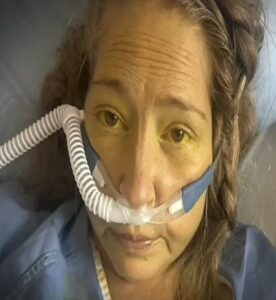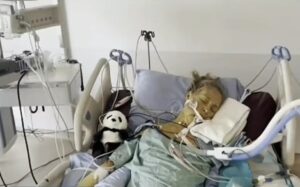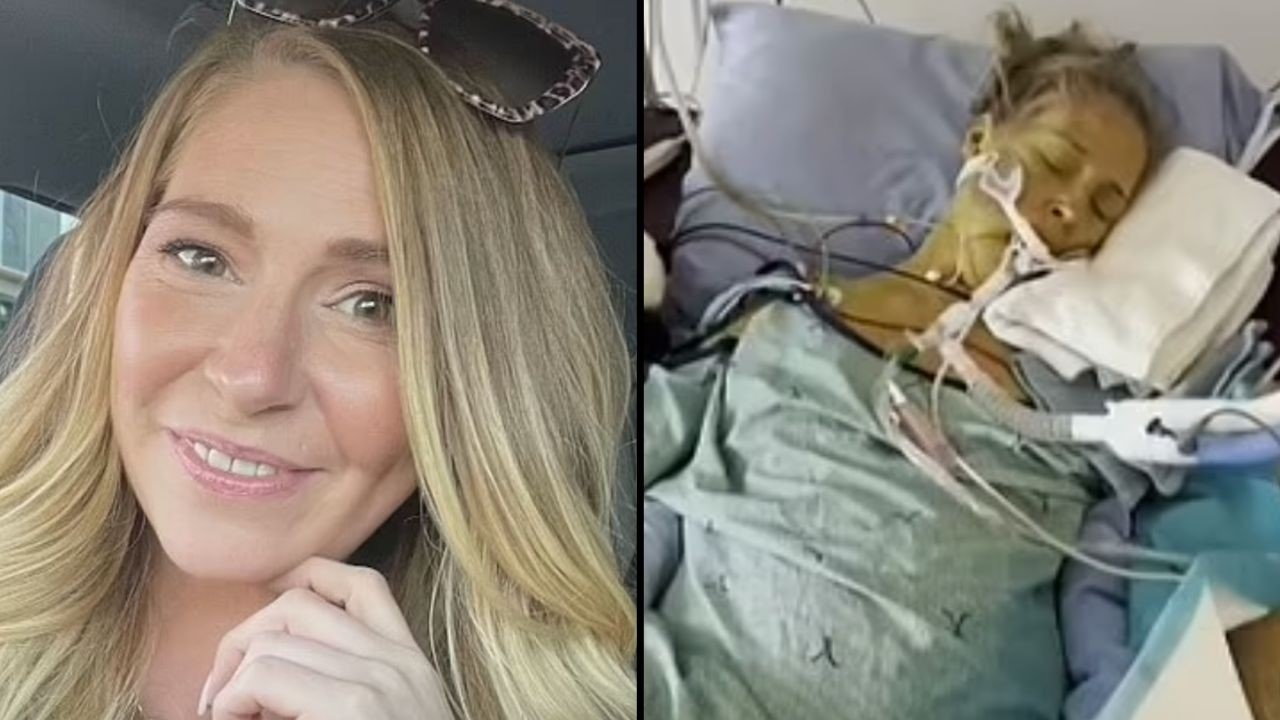A dying woman has been denied a liver transplant despite the fact her partner is willing to donate.
Amanda Husk, 36, has been on life support for three months awaiting the much-needed organ.
During her wait, doctors made an alarming finding and it has now caused Husk’s request for a liver transplant to be denied.
It’s believed she will have just weeks left to live.
A liver transplant is a complex surgical procedure aimed at replacing a diseased or failing liver with a healthy liver from a donor, per Mayo Clinic.
This medical intervention becomes necessary when the liver is no longer able to perform its vital functions.
Donors for liver transplants can be either deceased or living individuals.
The transplant process begins with a thorough medical evaluation of potential recipients to ensure they are suitable candidates. Matching a donor’s liver to a recipient involves considering factors such as blood type, body size, and the severity of the illness.
Once a suitable match is found, the transplant surgery is scheduled – but there are strict requirements a liver recipient must meet.

People aged 65 years or older with additional serious illnesses, severe organ diseases related to diabetes, severe obesity, or severe and active liver disease such as hepatitis B may not be suitable candidates for this procedure, per Medical.net.
Additionally, individuals who are currently using alcohol or drugs, have severe or uncontrollable infections like HIV, or have been diagnosed with aggressive cancers such as bile duct cancer, lymphomas, bone cancer, or myeloma-type cancer may not qualify for liver transplantation.

Husk has been waiting for a liver transplant for three months while on life support – her partner, Nathan Allen, has offered to be her donor as he has a matching blood type.
However, medics discovered the 36-year-old had relapsed into alcoholism before admission to the hospital and have now denied her the transplant.
The decision was made after reviewing her medical information and conducting a psychological review, with it being noted the decision was based on ‘minimal abstinence outside of hospital’.
Husk has agreed to undergo addiction treatment post-transplant but her prognosis remains grim.
Allen’s next move is to seek a transplant in Europe, but time is of the essence, and the cost of treatment is significant.

Medics discovered Amanda Husk had relapsed into alcoholism before being admitted to the hospital and have denied her the liver transplant. Credit: CTV News/Nathan Allen
“I will do whatever I can to save her life, just like the medical profession should be doing here,” Allen tells CTV News.
Husk’s struggle with alcohol began in her teens, and efforts to control her addiction have been challenging.
Debra Selkirk, whose husband died in 2010 after being denied a liver transplant due to alcoholism, has criticised the decision, arguing that life-saving procedures should not be based on perceived poor behaviour.
She advocates for more compassion towards individuals with alcohol-induced liver failure.
“People aren’t turned away because they didn’t exercise or because they work too much or they don’t get enough sleep or they didn’t follow doctor’s orders,” Selkirk argues.

Dr Saumya Jayakumar, an Edmonton liver transplant surgeon who is not involved in Husk’s case, explains that transplant criteria are generally uniform across Canada, emphasising the limited availability of donor organs and the need for comprehensive care beyond surgery.
She explains: “We can give you a brand new liver, but if we’re not able to change all of the circumstances that led to the liver failing, then have we really done you a service?”
Access to mental health support for transplant patients remains a challenge nationwide.
“Each year there are more than 178,000 deaths (approximately 120,000 male deaths and 59,000 female deaths) attributable to excessive alcohol use, making alcohol one of the leading preventable causes of death in the United States,” reports the National Institute on Alcohol Abuse and Alcoholism.
University Health Network officials tells CTV News: “We are unable to comment on specific cases due to patient privacy, but can say there are multiple criteria for living donor eligibility, only two of which are blood type and willingness.
“Recipient criteria are governed jointly by transplant centres and Trillium Gift of Life Network.”
